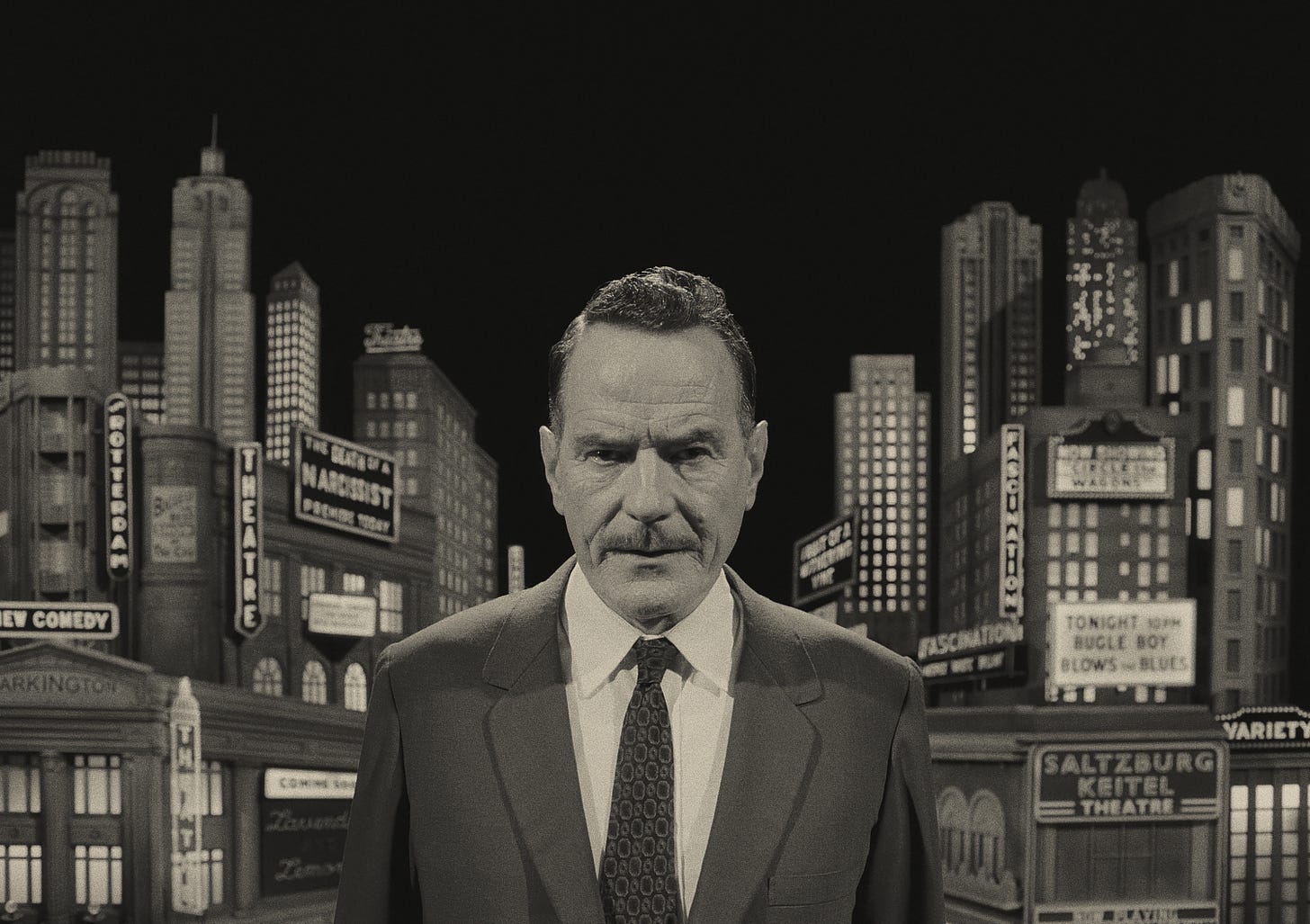‘Asteroid City’ Review: A Nesting Doll of Nonsense
I HAVE A FEELING that Wes Anderson’s new film, Asteroid City, would make a great deal more sense if I had a working knowledge of midcentury American theater. I am hoping that its mysteries will reveal themselves to me after I obtain, and consume, the companion essay collection, Do Not Detonate Without Presidential Approval: A Portfolio on the Subjects of Mid-Century Cinema, the Broadway Stage and the American West. I am willing to put in the effort because I believe that Anderson is a singularly talented film artist and that the failure to comprehend what he has put together in Asteroid City is a me, rather than him, problem.
But it remains a problem and one that, with a heavy heart, causes me to raise my hands in resignation and ask what, precisely, it was that I just saw.
On one level, Asteroid City is the story of a town in the Southwestern American desert that is, unexpectedly, visited by an alien (Jeff Goldblum). War photographer Augie Steenbeck (Jason Schwartzman) and his children are forced to quarantine in the town with movie star Midge Campbell (Scarlett Johansson) and her daughter, along with a menagerie of other oddballs. The cast of that menagerie is as impressive as it is extensive and as their mannerisms are clipped: Jeffrey Wright plays a general; Tilda Swinton plays a doctor; Rupert Friend plays a singing cowboy; Matt Dillon plays a mechanic; Maya Hawke plays a schoolteacher; Liev Schreiber plays a put-upon father whose spectrum-adjacent child drives him to madness, then sadness, and back to madness. I haven’t even mentioned Tom Hanks, who appears to be playing Bill Murray, absent for the first time in an Anderson film since they started working together in 1998’s Rushmore.
On another, deeper level, Asteroid City is the story of creation, and more specifically, the sort of collaborative creation that goes into stage work, where writers, actors, and directors come together. And it is on this level that the thing simply does not work.
Asteroid City is the title of a fictional play by the fictional playwright, Conrad Earp (Edward Norton); what we, the actual audience, are watching is a televised presentation of the writing and staging of this play hosted by a Rod Serling-like Bryan Cranston, who, during the act breaks, walks us through some of the play’s more important moments of inspiration. Which is to say that, like The French Dispatch (which told the story of a once-great American literary magazine resembling the New Yorker through the lens of the production of its final issue) or The Grand Budapest Hotel (which we see through the eyes of a girl reading a novel by a Stefan Zweig-like author that tells a story within a story), Asteroid City is, at least partly, a meditation on the medium through which the message is delivered.
Unlike those previous efforts, however, Asteroid City gets lost within itself, Anderson wandering down hallways of meaning that offer no exit. At one point near the end, an actor says he doesn’t understand the play, that its meaning eludes him. Then, breaking the fourth wall, he and others repeat a mantra: “You can’t wake up if you don’t fall asleep.” Their cadence, oddly, echoes that in another Norton film: Fight Club, when a gang of black-clad lunatics turns the phrase “His name was Robert Paulson” into a mantra justifying their fascistic demolition of modern society. Again, one imagines there is a grander meaning here; but it eludes me just as it eluded that actor.
Occasionally quite funny—Wright and Schreiber in particular are doing yeoman’s work, reacting to the precocious children in their midst with the sort of controlled frustration only a parent can muster—Asteroid City more frequently marinates in a simulacrum of midcentury ennui. With mushroom clouds from a nuclear test site literally in the distance, who can stand to think of the future?




